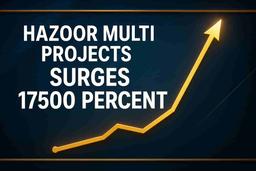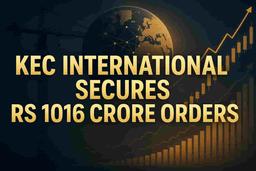India relies heavily on imports for energy, with nearly 89% of crude oil, 50% of natural gas, and 59% of LPG sourced externally. Despite being a top global refiner and exporter of petroleum products, the country spends heavily on foreign shipping. To enhance energy security and reduce costs, India is investing in expanding its refining capacity by 22% and developing a strong domestic tanker and shipbuilding industry, supported by government policies.
India faces significant energy import challenges, sourcing approximately 89% of its crude oil, 50% of natural gas, and 59% of Liquefied Petroleum Gas (LPG) from abroad. Despite this dependence, India possesses the world's fourth-largest refining capacity and is a major exporter of refined petroleum products, shipping around 65 million metric tonnes (MMT) annually.
Petroleum, oil, and lubricants (POL) constitute a substantial portion, about 28%, of cargo handled at Indian ports. Consumption has surged by 44% over the last decade, with continued annual growth of 3-4% expected. To meet this demand, India plans to increase its refining capacity by 22% to 315 MMT by 2030, positioning itself as a global refining hub.
However, high freight costs for imports, ranging from $0.7 to $3 per barrel for crude oil and 5-15% for LNG, contribute significantly to the import bill. Indian Oil Marketing Companies (OMCs) spend around $8 billion annually on vessel chartering, and overall shipping-related expenses reach $90 billion, largely paid to foreign companies.
India's maritime sector handles 95% of its trade by volume, yet its merchant fleet is small, representing only 0.77% of global ships. Shipbuilding capacity is also minimal, with India holding a 0.06% market share, dwarfed by China, South Korea, and Japan.
To address these vulnerabilities, the Indian government is implementing strategic initiatives. These include granting infrastructure status to the shipping sector for better financing, launching the National Shipbuilding Mission, creating shipbuilding clusters, a revamped financial assistance policy, and establishing a Maritime Development Fund. These measures aim to reduce foreign shipping costs, build resilience against global disruptions, and strengthen India's critical energy supply chains.
Impact
This news is highly impactful for the Indian stock market and economy. It highlights critical areas of national economic policy concerning energy security, infrastructure development, and trade balance. Investments in refining, shipping, and shipbuilding can lead to significant growth opportunities for related companies, attract foreign investment, and improve the country's overall economic resilience. The government's proactive stance suggests potential for robust sector growth and increased investor confidence in these areas. The impact rating is 8/10.
Difficult terms:
- Crude oil: A naturally occurring liquid found beneath the Earth's surface that can be refined into various types of fuels.
- Natural gas: A flammable gas, consisting largely of methane, used for heating and lighting.
- Liquefied Petroleum Gas (LPG): A flammable hydrocarbon gas, used as fuel.
- Petroleum, oil, and lubricants (POL): A category encompassing crude oil, refined petroleum products, and their derivatives used as lubricants.
- Million metric tonnes (MMT): A unit of measurement for large quantities of material, equal to one million metric tons.
- Refining capacity: The maximum output a refinery can produce within a given period.
- Freight charges: The cost of transporting goods, typically by sea, air, or land.
- Vessel chartering: The act of hiring a ship for a specific period or voyage.
- Indigenous: Originating or occurring naturally in a particular place; native.
- Maritime sector: Industries associated with seafaring, shipping, and trade conducted via the sea.
- Merchant fleet: A country's fleet of ships used for commercial purposes.
- Gross tonnage (GT): A measure of a ship's internal volume, used for regulatory and registration purposes.
- Shipbuilding: The construction of ships and other floating plant.











